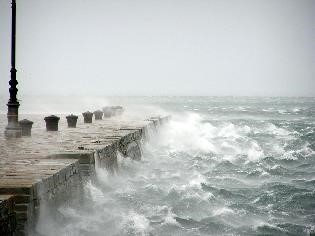Study online and develop your dramatic writing skills
Discover the reality of dramatic writing:-
 Develop your skills in writing, reviewing and editing.
Develop your skills in writing, reviewing and editing.
- Understanding the scope and nature of the genre.
- Learn about writing fiction, how to plan a novel and the submission of a manuscript.
- Course duration: Approximately 900 hours of self paced study.
THE ELEMENTS OF FICTION WRITING
 Before you begin to write, you need to be aware of what constitutes a piece of fiction writing. Once you have an idea of these principles you can write a broad synopsis and the undertake any necessary research and planning. This of course is a somewhat simplistic view of the process, but students on the course will benefit from modules which approach each of the subjects in an ordered and logical manner; each lesson building upon what has previously been studied. Our lessons also include illustrative examples to help you to better understand the concepts that you are studying.
Before you begin to write, you need to be aware of what constitutes a piece of fiction writing. Once you have an idea of these principles you can write a broad synopsis and the undertake any necessary research and planning. This of course is a somewhat simplistic view of the process, but students on the course will benefit from modules which approach each of the subjects in an ordered and logical manner; each lesson building upon what has previously been studied. Our lessons also include illustrative examples to help you to better understand the concepts that you are studying.
Fiction is writing that includes imaginary characters, events and/or settings created by the writer. All of the components of a fictitious story do not necessarily need to be fictitious though:
Imaginary characters might be set in a real world setting such as a well known city or a particular country.
Characters might be fictitious, but set in a “real” event.
Real characters may be used for a fictitious story that embraces an imaginary event or setting, or something more realistic, like a summer’s holiday at a fictitious beach resort, taken by a some famous historical figure.
Two Types of Fiction
There are traditionally 2 types of fiction:
1) Category
Also referred to as ‘genre’, these stories have a distinct theme and as such are easy to categorise. Examples of category or genre fiction are science fiction, westerns, adventure,crime, historical, romance, horror, erotica, mystery, suspense, fantasy and war stories.
When selecting a genre or category of fiction to focus on, it is best to choose one that suits your interests, knowledge and experience. Otherwise, be prepared to do a lot of research so you can credibly write about your chosen subjects.
2) Mainstream
These stories are aimed at the widest possible audience. They typically deal with most aspects of modern life including relationships, careers, and the search for success and fulfillment. Popular mainstream writers include Jeffrey Archer, Jackie Collins, Colleen McCullough and James Michener.
Characteristics of Category Fiction
There are 5 characteristics which are usually common to category fiction stories:
1. A strong plot
Frequently the age-old standard plot is used, where a hero is confronted with a very serious problem; he pursues a solution but faces more and more problems; then finally,faced with a desperate situation, the solution emerges to result in a happy ending. The underpinning driver of plot is conflict. Conflict is situation or person that undermines the perfect ideal of how things “should” be. This could mean a literal conflict between two characters, or some other form of cataclysm that interrupts the harmony of your protagonist’s existence. Conflict is an essential ingredient to good storytelling. It provides the momentum for the plot, the reason for your characters to exist and interact, and it sets up the eventual denouement or resolution to your story. In fact, without conflict, you don’t have a story.
2. A hero or heroine
The hero is the main character of the story, also known as the protagonist. He/she usually has strong personal qualities and engages the sympathies of the reader. It is important that your readership is able to identify with or admire your hero in some way. If the audience doesn’t like or engage with your hero, they will quickly lose motivation to read the rest of your story. In some cases you may choose to create a protagonist who is an anti-hero – that is, someone who does not fit the traditional heroic mould but who has other redeeming qualities. An anti-hero should be used only if his/her character is shown as being strong and true to their own set of values (which may differ to the values of the reader).
3. Obvious motivation
The purpose to which the hero or heroine aspires must be clear and easily grasped by the reader, whether it be to achieve love, fame, fortune, conquer evil, survive a series of trials or something else equally positive and easy to grasp. If the hero’s motivation is unclear, your story will appear to lack direction and the reader will become frustrated. The experience for the reader would be rather like watching an unfamiliar sport and not knowing the rules – the players would appear to be running around with no purpose and achieving nothing. If your hero has no clearly defined goal, his/her actions will appear pointless, rendering your story pointless, and the reader will lose interest.
4. Plenty of action
To keep your audience interested, your story should include plenty of action. Look to develop situations which will lead to problems which must then be solved, and perhaps while solving a problem, further problems will develop. The story should include frequent confrontations between characters and their environment. You may also introduce changes in scenery (the characters move from place to place), to generate interest and opportunities for further problems. If you choose to set your entire story in a single location you will need to work harder to create interest and opportunities for conflict and it is likely that your protagonist will have a more passive role in the story.
5. A colourful background or setting
Exotic or out-of-the-ordinary locations are frequently used to enhance the category story. Depending on the category and plot, the story might take place on another planet, a cavern beneath the earth, another period in time, or even among people leading a lifestyle in our society which is quite different to the norm.
SETTING THE SCENE
With the scene set, are you ready to study dramatic writing and maybe work towards having your writing published or even your first novel?
HOW THE COURSE WORKS
You can start the course at any time.
It is studied by distance learning, so you can study in the comfort of your own home. But this doesn't mean you are all alone in your studies. Our highly qualified and friendly tutors are there to help you every step of the way. If you have any questions at all, they are always happy to help.
HOW THE ADVANCED CERTIFICATE IS ASSESSED
The Advanced Certificate In Dramatic Writing requires approximately 900 hours of study. It is made up of seven 100 hour modules and workplace projects and/or Research Projects lasting a total of 200 hours.
To pass the course –
1. Pass all assignments on the seven 100 hour modules. There will be an assignment at the end of each lesson to submit to your tutor for marking and feedback.
2. Pass seven examinations – one on each module. These are usually taken at the end of the module and can be arranged at a time and location to suit you.
3. Complete Research Projects and/or Workplace Projects. The project should last around a total of 200 hours. There are four options available to you to satisfy this requirement. Don’t worry if you are not sure at this stage, your tutor will be there to help you every step of the way. This includes evidence of work experience or other studies or workshops, a research project or completion of Workshop I.
THE ADVANTAGES OF STUDYING WITH ACS
- You can start the course at any time and study at your own pace (we do not impose a time limit for you to complete your studies).
- Fit your studies around your own busy lifestyle - we provide full tutor support for all the time you are studying.
- Study where you want to - online studies offer the flexibility for you to determine where and when you study.
... WHAT NEXT?
If you would like to start dramatic writing or improve your existing skills, this advanced certificate will help you to become a more rounded and skilful writer. Work with our tutors to develop your dramatic writing skills.
Suitable for complete beginners and writers who would like to write in a more dramatic way.
CHOOSING THE RIGHT COURSE
Choose the right course to suit your goals or career plans – connect with one of our specialist Writing tutors – use our FREE COURSE COUNSELLING SERVICE.
TALK TO US, LEARN FROM OUR EXPERIENCE
Stay in touch, follow us on
Twitter – Facebook - Google